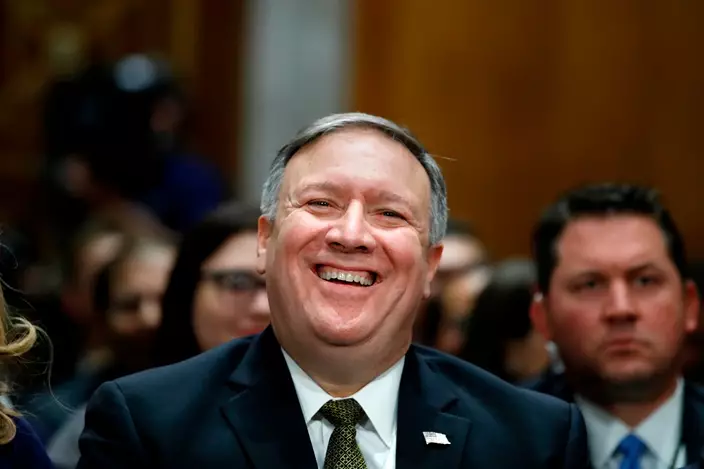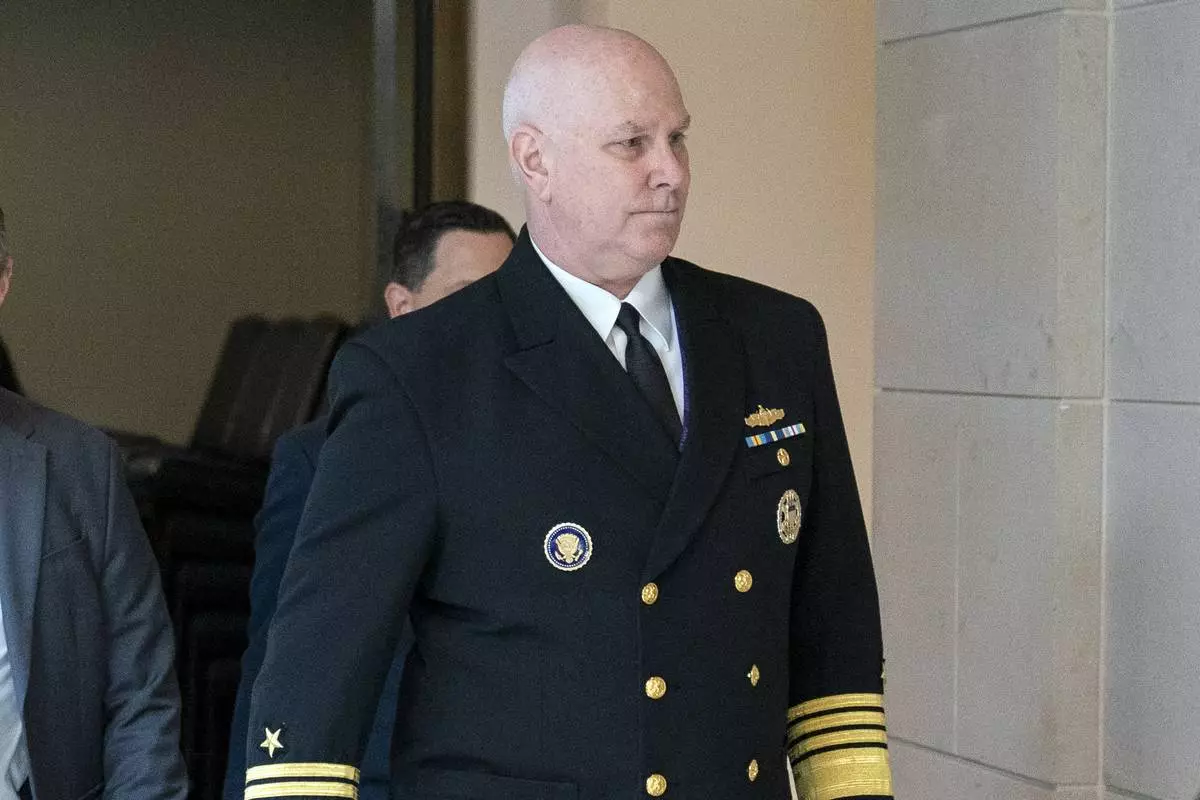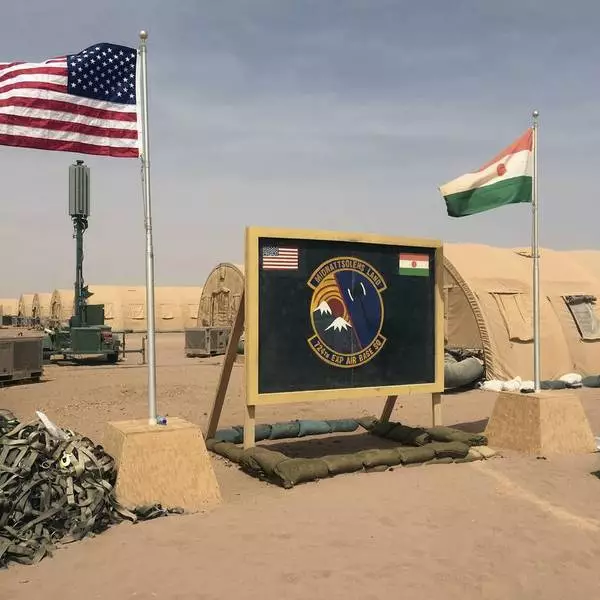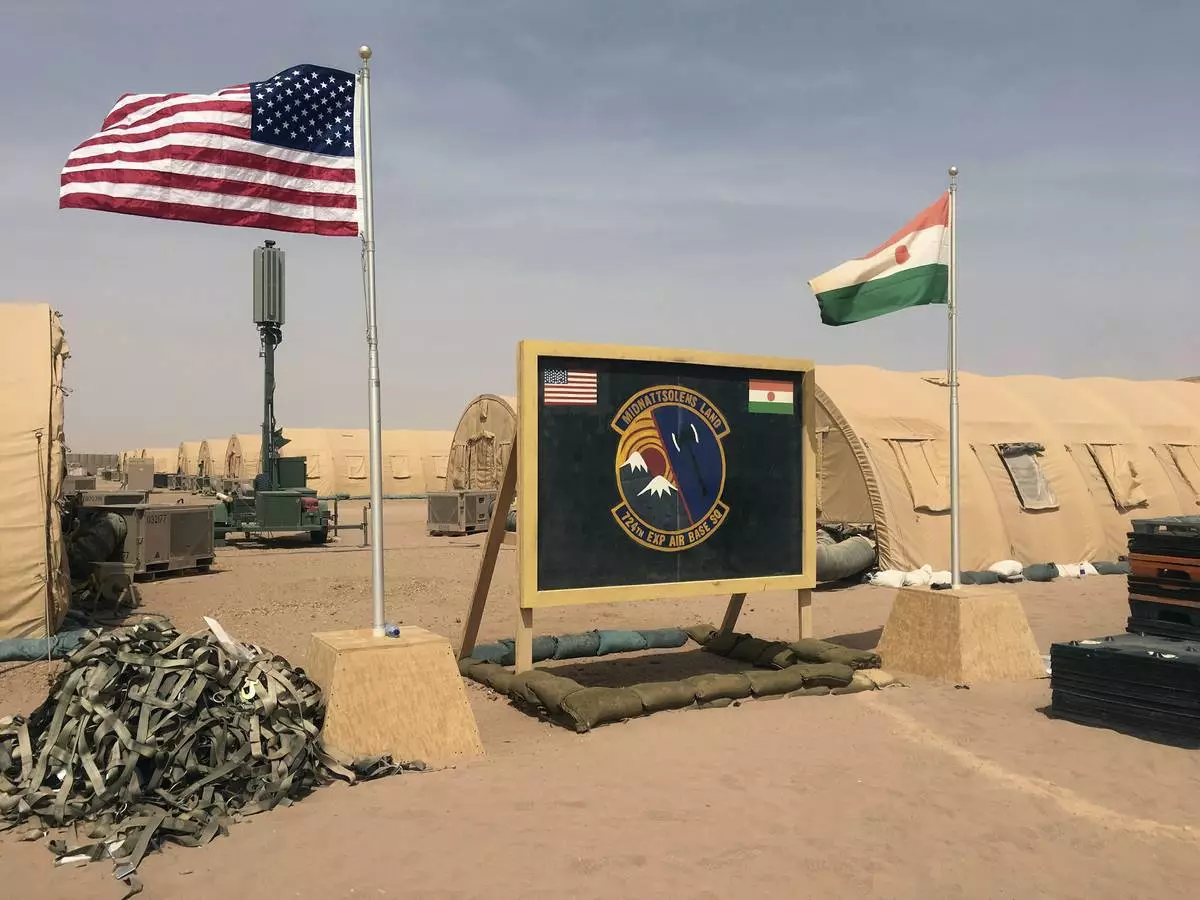CIA Director Mike Pompeo recently traveled to North Korea to meet with leader Kim Jong Un, two officials told The Associated Press on Tuesday.

In this April 12, 2018, photo CIA Director Mike Pompeo testifies on his nomination to be the next secretary of state on Capitol Hill in Washington. (AP Photo/Jacquelyn Martin)
The highly unusual, secret visit comes as the enemy nations prepare for a meeting between President Donald Trump and Kim within the next couple of months.
The officials spoke about Pompeo's trip on condition of anonymity because they were not authorized to discuss it publicly.
The Washington Post, which first reported Pompeo's meeting with Kim, said it took place over Easter weekend — just over two weeks ago, shortly after the CIA chief was nominated to become secretary of state.
Trump, currently at his Florida resort hosting Japan's Prime Minister Shinzo Abe, said Tuesday that the U.S. and North Korea were holding direct talks at "extremely high levels" in preparation for a possible summit with Kim. He said five locations were under consideration for the meeting, which is slated to take place by early June.
White House Press Secretary Sarah Huckabee Sanders said Trump and Kim have not spoken directly.
Kim's offer for a summit was initially conveyed to Trump by South Korea last month, and the president shocked many when it was announced that he had accepted. U.S. officials have indicated over the past two weeks that North Korea's government has communicated directly with Washington that it is ready to discuss its nuclear weapons program.
It would be the first ever summit between U.S. and North Korea during more than six decades of hostility since the Korean War. North Korea's nukes and capability to deliver them by ballistic missile pose a growing threat to the U.S. mainland.
The U.S. and North Korea do not have formal diplomatic relations, complicating the arrangements for contacts between the two governments. It is not unprecedented for U.S. intelligence officials to serve as a conduit for communication with Pyongyang.
In 2014, then-Director of National Intelligence James Clapper secretly visited North Korea to bring back two American detainees.
At his confirmation hearing last week to become the top U.S. diplomat, Pompeo played down expectations for a breakthrough deal on ending North Korea's nuclear weapons at the planned Trump-Kim summit, but said it could lay the groundwork for a comprehensive agreement on denuclearization.
"I'm optimistic that the United States government can set the conditions for that appropriately so that the president and the North Korean leader can have that conversation and will set us down the course of achieving a diplomatic outcome that America and the world so desperately need," Pompeo told the Senate Foreign Relations Committee.
After a year of escalating tensions, when North Korea conducted nuclear and long-range missile tests that drew world condemnation, Kim has pivoted to international outreach.
The young leader met China's President Xi Jinping in Beijing in late March, Kim's first trip abroad since taking power six years ago. He is set to meet South Korean President Moon Jae-in in the demilitarized zone between the rival Koreas on April 27.
WASHINGTON (AP) — The United States will pull the majority of its troops from Chad and Niger as it works to restore key agreements governing what role there might be there for the American military and its counterterrorism operations, the Pentagon said Thursday.
Both African countries have been integral to the U.S. military’s efforts to counter violent extremist organizations across the Sahel region, but Niger’s ruling junta ended an agreement last month that allows U.S. troops to operate in the West African country. In recent days, neighboring Chad also has questioned whether an existing agreement covered the U.S. troops operating there.
The U.S. will relocate most of the approximately 100 forces it has deployed in Chad for now, Pentagon press secretary Maj. Gen. Pat Ryder said Thursday at a press briefing.
“As talks continue with Chadian officials, U.S. AFRICOM is currently planning to reposition some U.S. military forces from Chad, some portions of which were already scheduled to depart. This is a temporary step as part of the ongoing review of our security cooperation, which will resume after Chad’s May 6th presidential election," Ryder said.
In Niger, the majority of the 1,000 U.S. personnel assigned there also are expected to depart, Ryder said.
U.S. and Nigerien officials were expected to meet Thursday in Niger's capital, Niamey, “to initiate discussions on an orderly and responsible withdrawal of U.S. forces," the State Department said in a statement late Wednesday. Follow-up meetings between senior Pentagon and Niger officials are expected next week “to coordinate the withdrawal process in a transparent manner and with mutual respect,” Ryder said.
Called status-of-forces agreements, these deals allow the U.S. to conduct critical counterterrorism operations within both countries' borders and have supported military partner training. The reversals have prompted concern that U.S. influence in Africa is losing ground to overtures from Russia and China.
Relations have frayed between Niger and Western countries since mutinous soldiers ousted the country’s democratically elected president in July. Niger’s junta has since told French forces to leave and turned instead to Russia for security.
Earlier this month, Russian military trainers arrived to reinforce the country’s air defenses and they brought Russian equipment, which they would train Nigeriens to use.
Niger plays a central role in the U.S. military’s operations in Africa’s Sahel region, a vast region south of the Sahara Desert. Washington is concerned about the spread of jihadi violence where local groups have pledged allegiance to al-Qaida and the Islamic State groups.
Niger is home to a major U.S. air base in the city of Agadez, about 920 kilometers (550 miles) from the capital, which is used for manned and unmanned surveillance flights and other operations. The U.S. also has invested hundreds of millions of dollars in training Niger’s military since beginning operations there in 2013.
Officials from the State Department, U.S. Africa Command and the Pentagon will work with Chad’s government to make the case for U.S. forces to continue operations, Joint Chiefs Vice Chairman Adm. Christopher Grady said Wednesday.
Grady told The Associated Press in an interview that if both countries ultimately decide the U.S. cannot remain, the military will have to look for alternatives to run counterterrorism missions across the Sahel.
“If we are asked to leave, and after negotiations that’s the way it plays out, then we are going to have to recalculate and figure out a new way to do it,” Grady said.
The news of the departure of U.S. forces in Chad was first reported by The New York Times.

FILE - Vice Chairman of the Joint Chiefs, Adm. Christopher Grady, right, arrives for a closed door briefing about the leaked highly classified military documents, on Capitol Hill, April 19, 2023, in Washington. Grady says there's been no final decision on whether or not all U.S. troops will leave Niger and Chad. (AP Photo/Alex Brandon, File)

US to pull troops from Chad and Niger as the African nations question its counterterrorism role

US to pull troops from Chad and Niger as the African nations question its counterterrorism role

FILE - A U.S. and Niger flag are raised side by side at the base camp for air forces and other personnel supporting the construction of Niger Air Base 201 in Agadez, Niger, April 16, 2018. The United States is attempting to create a new military agreement with Niger that would allow it to remain in the country, weeks after the junta said its presence was no longer justified, two Western officials told The Associated Press Friday April 19, 2024. (AP Photo/Carley Petesch, File)














